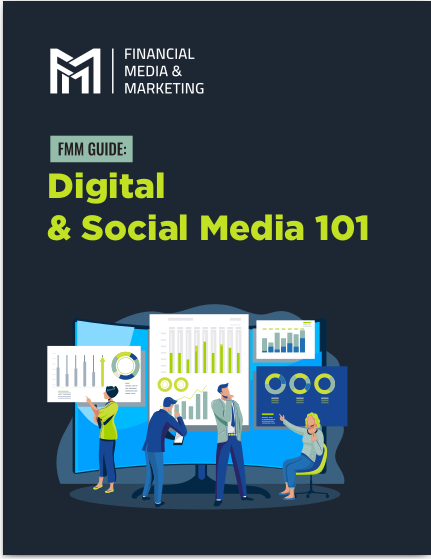Key Takeaways:
-
Content marketing remains an essential tool for building trust and deepening connections with clients and leads.
-
By focusing on tailored strategies and consistent delivery, you can create content that resonates, informs, and drives meaningful engagement.
Understanding the Power of Content Marketing
In today’s ever-evolving digital landscape, content marketing isn’t just a buzzword—it’s the foundation for effective communication and client engagement. For financial advisors, creating value-driven content allows you to showcase your expertise, address client concerns, and foster long-term trust. Yet, many professionals overlook its potential, focusing solely on direct advertising or one-time interactions. By investing in well-thought-out content strategies, you can position yourself as a trusted authority in your field.
Why Content Marketing Works for Financial Advisors
Building Trust with Your Audience
Clients and leads in the financial sector are often cautious and skeptical. They’re entrusting you with their financial well-being, so trust is paramount. Educational blogs, insightful videos, and informative newsletters offer them a glimpse into your expertise and approach. When they see consistent, high-quality content that addresses their specific concerns, they’re more likely to perceive you as a reliable partner.
Staying Relevant in Competitive Markets
The financial industry is crowded with professionals vying for attention. Content marketing helps you cut through the noise by offering something more valuable than a cold call or generic pitch: information. When you consistently provide answers to your audience’s questions, they’ll turn to you when they’re ready to make decisions.
Demonstrating Your Expertise
Content marketing allows you to showcase your unique knowledge and approach. Whether it’s explaining complex investment strategies or simplifying retirement planning, your content can serve as a portfolio of your skills. This positions you as a thought leader, which is crucial in a field that relies heavily on credibility.
Strategies to Make Content Marketing Work Better for You
Know Your Audience
Understanding your target audience is the cornerstone of any successful content strategy. As a financial advisor, your clients likely range from young professionals to retirees, each with distinct needs and concerns. To create content that resonates:
-
Segment your audience by demographics, interests, and financial goals.
-
Use surveys or feedback forms to learn about their pain points.
-
Track which content performs well to refine your future efforts.
Diversify Your Content Formats
Not everyone consumes information in the same way. Some people prefer reading detailed articles, while others engage more with videos or infographics. To maximize your reach:
-
Write blog posts and whitepapers for in-depth topics.
-
Create short, engaging videos for quick tips.
-
Share visually appealing graphics on social media to simplify complex ideas.
Optimize for Search Engines
Search engine optimization (SEO) is key to ensuring your content gets seen. By targeting relevant keywords, you can attract more organic traffic to your website. For instance, terms like “retirement planning tips” or “how to invest in 2024” could drive potential clients to your content. Remember to:
-
Use clear, descriptive titles and headings.
-
Include keywords naturally within your content.
-
Optimize meta descriptions and image alt text.
Consistency Is Key
Develop a Content Calendar
One of the biggest mistakes financial advisors make is inconsistency. Posting sporadically or only when you have time can lead to lost opportunities. Instead, create a content calendar that outlines:
-
Monthly themes (e.g., tax planning in March, holiday savings tips in December).
-
Regular posting schedules (e.g., one blog post per week, two social media updates per day).
Repurpose Your Content
Maximize your efforts by repurposing content across different platforms. For example:
-
Turn a blog post into a series of social media posts.
-
Use key points from a whitepaper to create an infographic.
-
Record a video explaining a popular blog topic.
Engaging with Your Audience
Encourage Interaction
Content marketing shouldn’t be a one-way street. Engage your audience by:
-
Asking questions at the end of blog posts or videos.
-
Hosting live Q&A sessions on social media.
-
Responding promptly to comments and messages.
Personalize Your Approach
While automation can save time, personalization is what makes your content resonate. Address your audience directly by using their names in emails or tailoring content to their specific interests. A personalized approach makes clients feel valued and understood.
Track Performance
To ensure your content marketing efforts are effective, you need to track key metrics such as:
-
Website traffic and time spent on pages.
-
Engagement rates on social media.
-
Conversion rates from content to consultations.
Use this data to adjust your strategy and focus on what works best.
Common Pitfalls to Avoid
Overloading on Technical Jargon
While you may be well-versed in financial terminology, your audience might not be. Overusing technical language can alienate potential clients. Aim to simplify concepts without oversimplifying their importance. Use relatable analogies to explain complex ideas.
Ignoring Mobile Users
With more people consuming content on their smartphones, it’s essential to optimize your content for mobile devices. Ensure your website is mobile-friendly, and create shorter, scannable pieces for easy reading on small screens.
Focusing Too Much on Selling
Content marketing is about building relationships, not making hard sales. If every piece of content feels like an advertisement, your audience will lose interest. Instead, focus on educating and informing, letting your expertise naturally lead to conversions.
Making It Sustainable
Automate Where Possible
Tools like email marketing platforms and social media schedulers can help streamline your efforts. Automate repetitive tasks like posting updates or sending newsletters, so you can focus on creating quality content.
Collaborate with Others
Consider partnering with other professionals, such as tax advisors or estate planners, to co-create content. This not only lightens your workload but also expands your reach to their audience.
Stay Updated
The financial world is constantly changing, and your content should reflect that. Keep up with the latest trends, policies, and tools to ensure your content remains relevant and valuable.
What This Means for Your Success
Content marketing isn’t just a supplementary tool; it’s a vital part of building and maintaining strong client relationships. By focusing on your audience’s needs, diversifying your formats, and maintaining consistency, you can create a strategy that drives long-term success. As a financial advisor, your expertise is your greatest asset. Let your content showcase that to the world.










